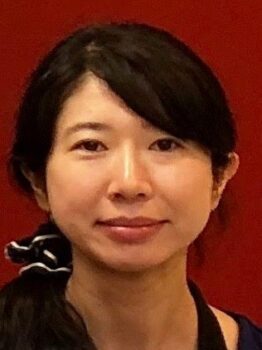CSB Alumni Spotlight: Norie Sugitani, PhD
 Norie Sugitani, Ph.D., completed her doctoral work at Vanderbilt in 2017. Her aspirations to become an astronaut led her from her birthplace in Western Japan to the United States, eventually leading her to the lab of Walter Chazin. A major health challenge facing astronauts is high exposure to radiation from the sun, which led her to investigate the primary pathway for the repair of the resulting DNA lesions, nucleotide excision repair. Norie won the Karpay Award in 2017 and presented “Scaffolding Branches: XPA in DNA Repair and Graduate School Survival” at the award seminar.
Norie Sugitani, Ph.D., completed her doctoral work at Vanderbilt in 2017. Her aspirations to become an astronaut led her from her birthplace in Western Japan to the United States, eventually leading her to the lab of Walter Chazin. A major health challenge facing astronauts is high exposure to radiation from the sun, which led her to investigate the primary pathway for the repair of the resulting DNA lesions, nucleotide excision repair. Norie won the Karpay Award in 2017 and presented “Scaffolding Branches: XPA in DNA Repair and Graduate School Survival” at the award seminar.
What is your current job title and responsibilities? I am a postdoctoral fellow in the Bakkenist lab at the University of Pittsburgh, Hillman Cancer Center. My project focuses on how AZD6738 affects proliferation and DNA replication of CD8+ T cells. Ataxia Telangiectasia mutated and Rad3-related (ATR) kinase is critical in DNA damage response (DDR). An ATR inhibitor AZD6738 is currently in phase I and II clinical trials for cancer treatment. AZD6738 has been shown to potentiate radiosensitivity of colon cancer xenograft mice in CD8+ T cell-dependent manner. CD8+ T cells are the major population of immune cells responsible for killing cancer cells. While it’s clear that CD8+ T cells play an important role in AZD6738-mediated cancer cell death, it’s not clear how AZD6738 impacts CD8+ T cells.
What was your path to your current job? I joined my current lab directly after my graduate work under Dr. Chazin at Vanderbilt. After studying DNA repair mechanisms that have cancer relevance in graduate school, I developed a strong interest in pre-clinical studies that improve cancer therapy. I chose my current research opportunity to expand my knowledge and tools to study DNA damage response (DDR) to treat cancers. When looking for postdoctoral positions, I focused on the Pittsburgh area for personal reasons.
What is something you learned in grad school at Vanderbilt that has helped you in your career? Background of DNA replication and DDR as well as knowledge of their cancer relevance were very helpful for my current position despite the difference in research techniques.
Do you use structural biology in your present job? How has knowledge of structural biology helped you in your career? Even though I’m not currently using structural biology in my current project, my structural biology background has been valuable. It helped me understand biological problems deeper and from multiple angles. I was also able to assist colleagues from more translational backgrounds with structure-based protein construct design and interpretation of manuscripts with structural models.
What advice would you give to young trainees? Your physical and mental health should be your highest priority.
Leave a Response
You must be logged in to post a comment